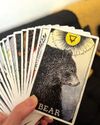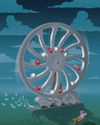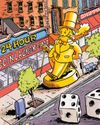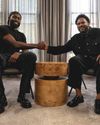
Business leaders are often fascinated by military tactics, and with understandable reason: They see themselves as waging battle against challenging incumbents and evading minefields in the marketplace. But there is a radically different, equally important way of understanding business—and it often goes overlooked. It is the way business mimics biology.
Bruce Henderson, the late founder of Boston Consulting Group (BCG), wrote about this concept in 1989. He insisted that a plan of attack created purely through logic and imagination was insufficient to win in the real world. A successful strategy had to recognize the complex web of natural competition and laws of nature that govern competitive advantages of all species— including people, who compete primarily with each other through commerce.
Fast-forward a few decades. Our collective knowledge of biology has improved, and we now know more about what governs natural competitive advantages in a variety of species. As an innovator looking to unseat incumbents, you should study these natural rules of the game—and take them into account in most of your plans. In my experience as both an academic and a strategy adviser, I’ve found the following three biological propensities to be the most relevant when making the right choices around disruptive innovation and competition.
Esta historia es de la edición December 2021 de Entrepreneur.
Comience su prueba gratuita de Magzter GOLD de 7 días para acceder a miles de historias premium seleccionadas y a más de 9,000 revistas y periódicos.
Ya eres suscriptor ? Conectar
Esta historia es de la edición December 2021 de Entrepreneur.
Comience su prueba gratuita de Magzter GOLD de 7 días para acceder a miles de historias premium seleccionadas y a más de 9,000 revistas y periódicos.
Ya eres suscriptor? Conectar

How to Succeed With Gen Z Workers
People often say that younger employees are different. But are they? We asked six business leaders what they've learned, and how their teams thrive.

There's No Perfect Answer
I worked the same job for 19 years. I hated it, but it paid the bills. Then, in 2017, I entertained an exciting but terrifying question: Could I be an entrepreneur? I wasn't sure, so I needed something that felt like a guarantee. I searched for signs that would feel like a big, clear \"yes!\" Instead, what I found was a tarot card deck.

10 HOTTEST TRENDS for 2025
Want to buy a brand that buzzes? Here's what to know.

BUILD YOUR MONEY MACHINE
A franchise isn't just a franchise. It should be a Money Machine, creating profit even while you're out of the office. Here's how.

The Top Franchises for Veterans
Are you a military vet looking to become a franchisee, or just want to support a brand that supports the troops? Check out these 150 brands.

20 LEADERS WHO ARE DEFINING ENTREPRENEURSHIP TODAY
In a year of disruption, we wanted to know: Whose work will define the years to come? We reviewed hundreds of names and picked 20 leaders across a range of industries and sizes. Meet them on the following pages, and see what it takes to thrive in 2025 and beyond.

How to Become a Main Street Millionaire
It started when I bought one little laundromat. Now I have a whole portfolio of small local businesses that bring in tens of millions in revenue a year. Here's why following my playbook could be your ticket to financial freedom-and saving America's local small businesses.

Want to Better Serve Your Clients? Become Them.
As a designer for brands, starting my own product company gave me a dose of humilityand it changed the way I relate to clients.

I've Been a Publicist for 17 Years.Don't Hire Me.
Entrepreneurs often think they need PR. Most don't. Here's why you're probably better off not hiring someone like me.

The CEO's Advice to the MVP
Kickstarter CEO Everette Taylor knows the formula for a successful launch. NBA champ Jaylen Brown recently launched a shoe and athleisure brand. They have a lot to teach each other.